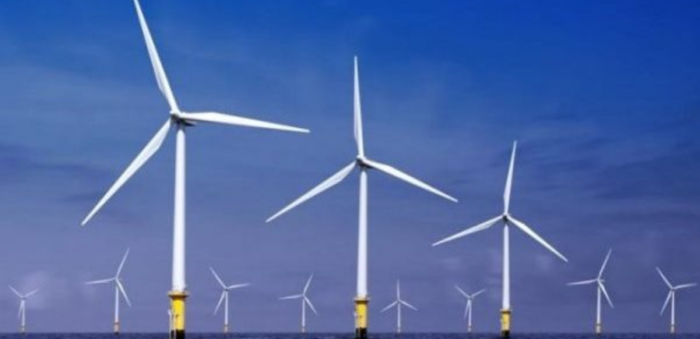DNV GL unveiled the final reports in a study which demonstrates the commercial and technical feasibility of the offshore wind market In India. Co-funded by the European Union, GPCL and ReNew Power, the Facilitating Offshore Wind in India (FOWIND) project is intended to enable organisations to make future investments in the region.
Although offshore wind industry has been largely concentrated within Europe over the last years, India is driving a change with strong commitments under the UN Paris Climate Agreement and ambitious renewable energy goals in 2015, targeting 175 GW of renewable energy capacity by 2022, including 60 GW from wind energy.
On the occasion of the publication of these reports, the Ministry of New and Renewable Energy, Government of India stated:
It is the beginning of India’s journey from Onshore to Offshore – A dream comes true.
The project, which supports India’s transition towards the use of clean technologies in the power sector, focused on the states of Gujarat and Tamil Nadu, to identify potential zones of development through preliminary resource and feasibility assessments for future offshore wind developments, as well as through techno-commercial analysis and preliminary resource assessment, DNV GL informed.
By providing a concept design for a 150 to 504 MW demonstration project in both Gujarat’s and Tamil Nadu’s most promising offshore wind development areas, identified as “zone A”, companies and government institutions now have a starting point for future detailed offshore front end engineering design (FEED) studies.
Speaking about the project, Ditlev Engel, CEO DNV GL – Energy, said:
At the start of this project nearly four years ago, offshore wind in India was no more than a distant vision. Today however, India has a specific offshore wind policy, a government actively ’gearing up’ for offshore and local and overseas stakeholders pro-actively considering this new endeavor. These are significant steps to a greener energy future for India.
The consortium, led by Global Wind Energy Council (GWEC) and including the Centre for Study of Science, Technology and Policy (CSTEP), DNV GL, the Gujarat Power Corporation Limited (GPCL), the World Institute of Sustainable Energy (WISE) and the National Institute of Wind Energy (NIWE), has implemented the FOWIND project, to provide feasibility studies, knowledge sharing workshops/seminars and offshore wind measurement to support India in their development of a commercial offshore wind market.






























































